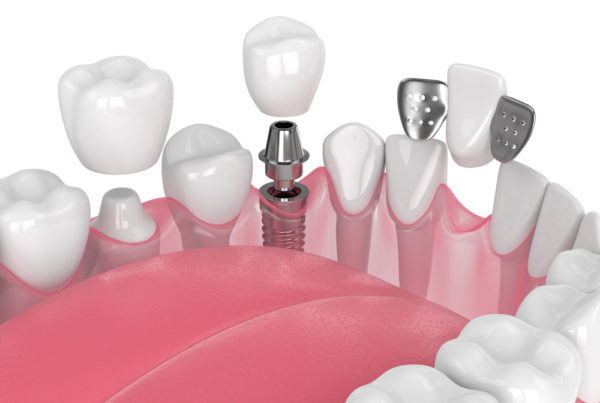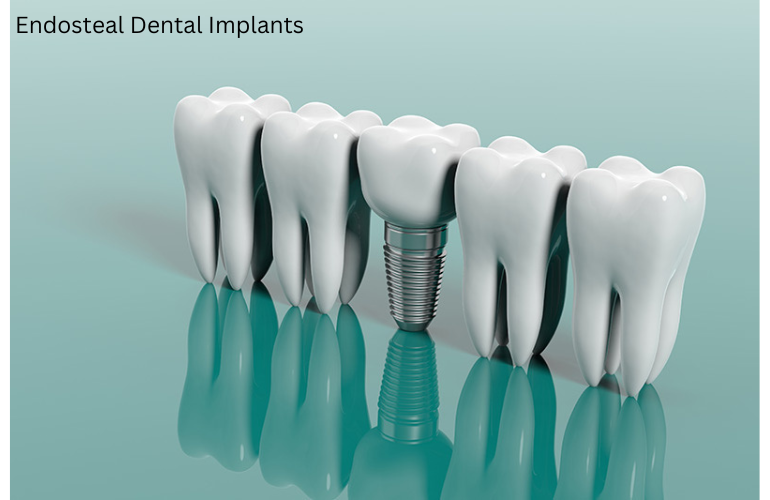In outpatient surgery, dental implants are installed in a single visit. Implants are tooth-like roots composed of titanium and other materials that integrate with your jawbone. The dentist can use this artificial root to anchor your replacement teeth, so they feel stable and mix in with your other teeth.
A series of consultations are required to have dental implants. This includes a consultation, an implant placement appointment, and a final session to link the new teeth to the implanted teeth.
Dental implants serve a specific function. Dentures and bridges serve a particular function. Using dental implants to replace one or more of a patient’s missing teeth is possible. During your initial meeting with your Cherry Hill dentist, they may discuss different options for replacing your missing teeth.
They’ll talk to you about whether or not the area around the lost tooth has enough room and bone to support the treatment. The bone loss might occur if your tooth is gone for an extended period. Dental implants cannot be placed without first undergoing a bone graft.
Instructions for Preparation
First, you’ll meet with your dentist to discuss the operation. Cherry Hill Dentist will do a thorough examination of your mouth. To plan the implant procedure, they’ll take X-rays and talk to you about your alternatives.
Once you’ve worked out a strategy and your doctor has verified that you’re healthy, they’ll set up a time for surgery. If your dentist suggests IV sedation, you’ll need someone to drive you home after the treatment.
Location
A dental implant operation is usually performed at a dentist’s office. You’re in good hands if you need oral surgery or restorative dentistry.
Drinking and Eating
Having an empty stomach is a good thing to have. You can eat a light meal a few hours before a local anesthetic surgery. No food or drink after midnight on the night before surgery is not recommended for patients receiving intravenous sedation.
Medications
To prevent early implant failures, your dentist may prescribe antibiotics taken a few days before surgery. You may also be asked to use an antibacterial mouthwash, such as chlorhexidine to clean your mouth.
Pre-Op Lifestyle Modifications
If you smoke, you may not be able to get a successful dental implant. If you smoke, you should discuss the possibility of dental implants with your dentist.
When and How the Procedure Will Be Performed
Implant placement is best left to a dentist who has experience with it. There are some circumstances where the implant and tooth (crown) can be inserted on the same day.
It is not uncommon, however, for the implant operation to be performed over a series of appointments spaced out over some time.
First, the implant is surgically placed in your mouth, and you’ll either be given a local anesthetic or IV sedation. A pain-free and comfortable experience is guaranteed.
The implant is inserted into the jawbone through a small incision made in your gums by your dentist. Once the implant is in place, the dentist seals the gums around it to protect it.
Once you’ve recovered at home, you’ll most likely return for the second treatment step in a few months for the bone to grow around the implant, which gives enough time to make the implant robust enough to remain in place for the long term. Osseointegration is the term used to describe this process in which titanium fuses with the bone.
The dentist will do a thorough examination to ensure that the implant is in good condition. A connecting piece known as an abutment will then be attached to the post portion of the implant. The new tooth will be held in place by this portion.
The Cherry Hill dentist will take impressions of your teeth once your gums have healed. They’ll make a crown, a personalized substitute for a missing tooth. Attaching the crown to the abutment is the final step in this process.
Recovery
You’ll be a little tired after an IV sedation procedure. Don’t forget to have someone drive you home from the hospital.
The possible side effects of implant placement are bruising swelling, mild bleeding, and pain. To aid in your recovery, you may be encouraged to eat soft foods, cold foods, and warm soup. Your dentist likely recommends Advil and other over-the-counter analgesics if you experience discomfort (ibuprofen).
Care For Long Term
Dental implants, like your natural teeth, require frequent brushing and flossing. Brush and floss your teeth at least twice daily, and visit your dentist for regular checkups to maintain health. Periodontal disease can influence dental implants, which is why excellent dental hygiene is essential.
Now when you are aware of the proper procedure for a dental implant. Get the best dental implant treatment from one of the best dentists of the Woodcrest Dental Association in Cherry Hill.




